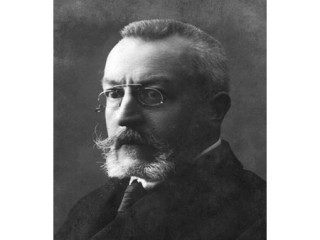
Henri Pirenne biography
Date of birth : 1862-12-23
Date of death : 1935-10-24
Birthplace : Verviers, Belge
Nationality : Belgian
Category : Famous Figures
Last modified : 2011-07-22
Credited as : Historian, philisophy,
Henri Pirenne was born at Verviers on Dec. 23, 1862. At the University of Liege he studied history with Godefroid Kurth and Paul Fredericq. He received his doctorate in philosophy in 1883 and won a scholarship that allowed him to study in Berlin and Paris. In 1885 he organized the teaching of paleography and diplomatics at the University of Liege, and in 1886 he was named professor at the University of Ghent, where he remained for 40 years.
During World War I Pirenne was imprisoned for resisting the German occupation. Moved from prison camp to prison camp, he learned Russian in one, taught Belgian history to the Belgian prisoners in a second, and without the aid of books or notes wrote a History of Europe (1936) in a third. "He was a teacher without peer, " a student later wrote, "exciting his young students with his forceful and colorful rhetoric and by the originality of his ideas." From his seminar at Ghent there issued a large number of eminent Belgian and American medievalists.
In 1893 Pirenne published an article on the origins of medieval towns. Worked out in later articles and in two books, Belgian Democracy: Its Early History (1910) and Medieval Cities (1925), his thesis came to dominate studies of medieval urban institutions. Some historians argued that medieval town constitutions originated in ecclesiastical immunities, others that towns were outgrowths of medieval servile communities, and still others that they descended from primitive free communities. Pirenne maintained that the early medieval town was only a fortress, economically dependent on the countryside. With the economic revival of the 10th and 11th centuries, however, old cities were reborn and new towns created in the form of trading settlements near the older fortresses. These created their own law and a new status of personal freedom. Though Pirenne's argument was largely intuitive, the validity of his thesis for northern European towns was demonstrated by the research his views inspired.
In 1922 Pirenne published another provocative article, "Mohammed and Charlemagne, " in which he argued that the break between antiquity and the Middle Ages came with the closing of the Mediterranean by the Moslem conquest of Africa and Spain. Worked out in a book by the same title (1937), the thesis inspired other historians to turn their attention to the economic history of the early Middle Ages, and it still remains the starting point for discussions of the societies of Merovingian and Carolingian Europe. Pirenne also wrote a History of Belgium (7 vols., 1900-1932). He died at Ukkel on Oct. 24, 1935.
















